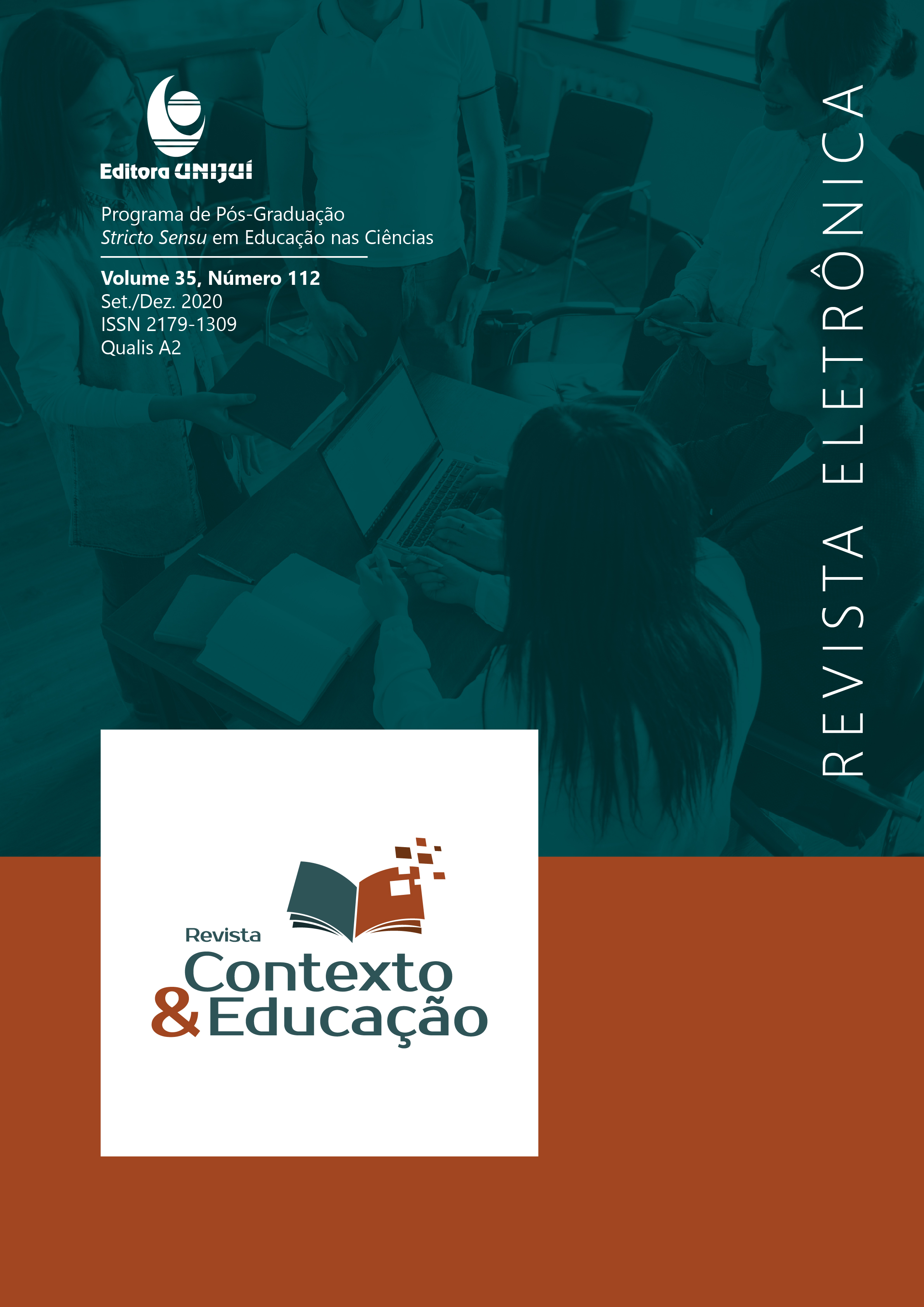O CONCEITO DE ENSINO MÉDIO INTEGRADO: UM CONFRONTO ENTRE DOCENTES LICENCIADOS E DOCENTES BACHARÉIS
DOI:
https://doi.org/10.21527/2179-1309.2020.112.102-116Keywords:
Ensino Médio Integrado, Currículo Integrado, Educação Profissional e TecnológicaAbstract
Abstract: Integrated High School (EMI) to the technical course coexists with multiple interpretations among education professionals themselves. This article is the result of a research that aimed to investigate, through individual interviews with 16 effective teachers, the origin of this dissimilarity of the concept of teaching integration, in an attempt to find out whether the type of academic degree (licensure or bachelor's degree) of teachers interferes in the construction of this concept. The theoretical basis of this article was based on Ramos (2008), Ciavatta (2005) and Araújo and Frigotto (2015). As a result of the research, we identified that all 16 teachers interpret, by a functional bias, the concept of teaching integration in the same way, ie, implement professional education harmoniously to the propaedeutic disciplines, such as mathematics, Portuguese language, geography, biology and etc., so that knowledge for life and work are built indivisibly. On the other hand, in a holistic bias, only five teachers believe that integration should be fundamental not only in the moment of methodological choices for the exposure of content, but also in the stages of planning and evaluation, for example, understanding the course as fully integrated.
Keywords: Integrated High School. Integrated Course. Licensure. Bachelor's degree. Conception.
Downloads
Published
How to Cite
Issue
Section
License
By publishing in Revista Contexto & Educação, authors agree to the following terms:
All works are published under the Creative Commons Attribution 4.0 International License (CC BY 4.0), which allows:
Sharing — to copy and redistribute the material in any medium or format;
Adaptation — to remix, transform, and build upon the material for any purpose, even commercially.
These permissions are irrevocable, provided that the following terms are respected:
Attribution — authors must be properly credited, a link to the license must be provided, and any changes made must be indicated.
No additional restrictions — no legal or technological measures may be applied that legally restrict others from doing anything the license permits.
Notices:
The license does not apply to elements that are in the public domain or covered by legal exceptions.
The license does not grant all necessary rights for specific uses (e.g., image rights, privacy, or moral rights).
The journal is not responsible for the opinions expressed in the articles, which are the sole responsibility of the authors. The Editor, with the support of the Editorial Board, reserves the right to suggest or request modifications when necessary.
Only original scientific articles presenting research results of interest that have not been previously published or simultaneously submitted to another journal with the same purpose will be accepted.
Mentions of trademarks or specific products are intended solely for identification purposes and do not imply any promotional relationship by the authors or the journal.
License Agreement (for articles published from October 2025): Authors retain the copyright to their article and grant Revista Contexto & Educação the right of first publication.


